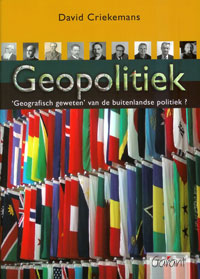Introducing David Criekemans
 David Criekemans is Associate Professor in ‘Belgian and Comparative Foreign Policy’ at the University of Antwerp (Belgium) and in ‘Geopolitics’ at both the Royal Military Academy in Brussels (Belgium) and the International Centre for Geopolitical Studies (ICGS) in Geneva (Switzerland). He also works at the Flemish Centre for International Policy (FCIP) in Antwerp (Belgium).You can download the pdf-file of the Simulation Exercise (903 kB)
David Criekemans is Associate Professor in ‘Belgian and Comparative Foreign Policy’ at the University of Antwerp (Belgium) and in ‘Geopolitics’ at both the Royal Military Academy in Brussels (Belgium) and the International Centre for Geopolitical Studies (ICGS) in Geneva (Switzerland). He also works at the Flemish Centre for International Policy (FCIP) in Antwerp (Belgium).You can download the pdf-file of the Simulation Exercise (903 kB)
Article
For more than eight years since the unanimous adoption of resolution 1244 (1999) by the UN Security Council, the international community has been trying to find a solution to the ‘final status’ of Kosovo. Since February 2007, this debate is accelerating; the Special Envoy of the UN Secretary-General, Mr. Martti Ahtisaari, unveiled a plan to set Kosovo on a path to independence. The plan –although fully backed by the West– is highly controversial, both in Serbia and in Russia. To make matters worse, the relations between the Russian federation and some Western countries such as the United States of America and the United Kingdom have rapidly deteriorated as a result of conflicting interests:
- Washington’s intention to install anti-ballistic missile-facilities in the Czech republic and Poland “to protect against Iran” (but Moscow thinks it is targeting Russia);
- The UK-Russia row over the murder of ex-FSB spy Litvinenko, and Moscow’s unwillingness to extradite the FSB-spy and main suspect Lugovoi, resulting in the reciprocal expulsion of British and Russian diplomats;
- Western fears over Russia’s reliability and intentions regarding its gas and oil deliveries;
- The Russian row with Canada and the US about their respective territorial claims over the North Pole (gas &oil reserves);
- Russia’s restlessness over a further NATO-enlargement.
The ‘Kosovo-dossier’ risks becoming a victim of the rapidly deteriorating East-West-relationship. Russia might very well decide to take a stand in this dossier, bearing in mind its symbolic importance as a precedent in other potential secession cases and to repel any further Western intrusion in what they consider to be their ‘sphere of influence’. This setting forms the core of the negotiation exercise which you are about to embark upon.
Related webpages and book
 Onderzoeksgroep Diplomatie en Geopolitiek
Onderzoeksgroep Diplomatie en Geopolitiek- Vlaams Steunpunt Buitenlands Beleid
- Personal page of David Criekemans
“Geopolitiek, ‘geografisch geweten’ van de buitenlandse politiek?”, Garant / Maklu (Antwerpen / Apeldoorn), 2007
